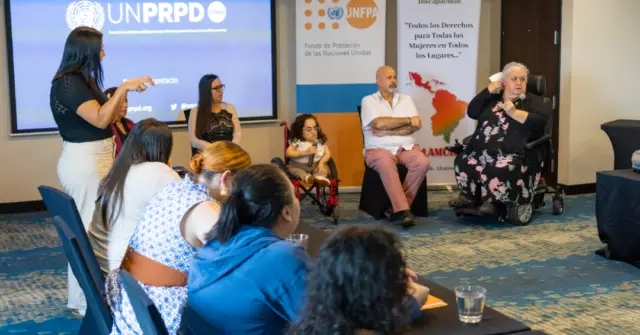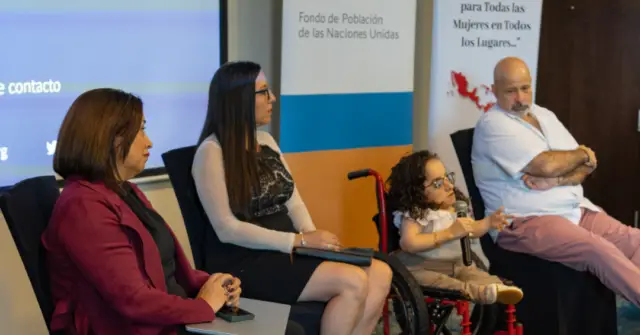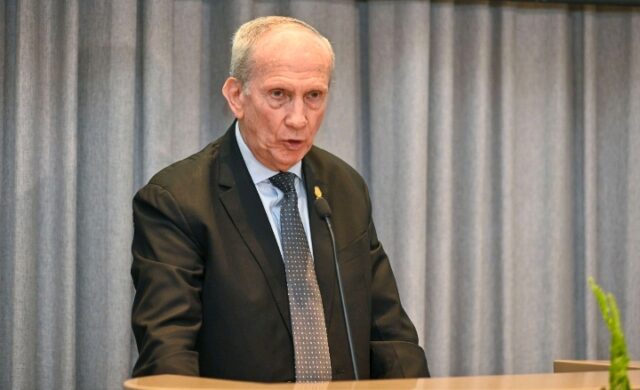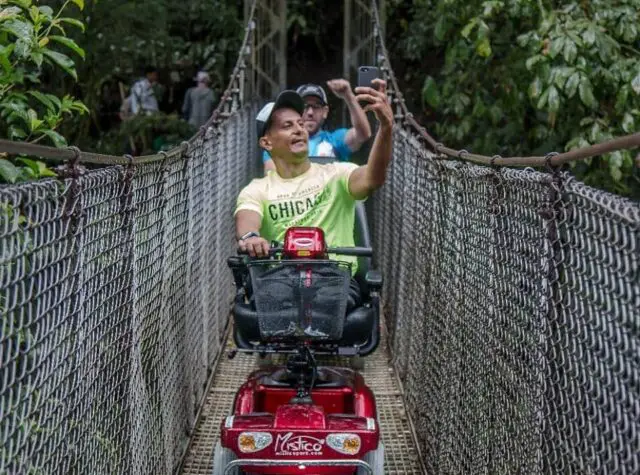The United Nations Population Fund (UNFPA) in Costa Rica and the Latin American Association of Women with Disabilities (ALAMUD), developed a course called “Beyond Barriers”.
Among the purposes of the course are: To accelerate compliance with the Convention on the Rights of Persons with Disabilities and, in turn, to prepare a team for the analysis of the situation in Costa Rica disability, to then promote the full inclusion of persons with disabilities by addressing the challenges from a Human Rights perspective.

This training process, guided by the United Nations Partnership on the Rights of Persons with Disabilities (UNPRPD), lasted six weeks. Social organizations, public institutions, and United Nations staff shared tools to generate strategies for the inclusion of persons with disabilities, from the most basic concepts to facilitating tools to promote decision-making in public policy related to the rights of persons with disabilities at the national level.
The president of ALAMUD, Éricka Álvarez, highlighted that this course is an opportunity to provoke intersectoral alliances, deepen knowledge on issues of relevance for the population with disabilities, and achieve the effective inclusion of all people. “Costa Rica today has a group of people with solid and strategic knowledge to propose a change and trace the route to achieve that change and improve the lives of people with disabilities.”
Juan Luis Bermudez, head of UNFPA in Costa Rica, added that this training is of great importance for the work they do in the country because it allows us to visualize now from a technical institutional perspective, the various barriers faced by people with disabilities from an intersectional approach nourished by the experiences and stories of people with disabilities.

“This will in turn allow us to deepen in the development of viable alternatives from the institutions to face these challenges that prevent the inclusion and full participation of persons with disabilities in the country. It is essential to continue generating meeting and training spaces to build, from a diverse approach and an empathetic dialogue, which allow us to leave no one behind” he said.
Inclusion actions in Costa Rica
In an interview that our team of journalists conducted with the Minister of Tourism, William Rodriguez, it was learned that in the country, concrete actions have been implemented in key tourist areas, where trails, beaches, and activities have been adapted to be accessible to people with disabilities, for example, a canopy tour adapted for wheelchair users, a rainforest suitable for people with disabilities or surfing and catching waves without reduced mobility being an impediment.

Similarly, the Ministry has trained guides and operators in inclusive service and continues to work to make more destinations accessible to all.
There are other actions that are implemented between the Costa Rican Network of Accessible Tourism and the Ministry: Currently, there are beaches that have some level of accessibility such as Junquillal, Panama, Hermosa de Guanacaste, Tamarindo, Puntarenas, Herradura, Jaco, Bandera, Espadilla, Manuel Antonio, Hermosa de Osa, Puita, Cieneguita and Cahuita.

In fact, the Costa Rican Network of Accessible Tourism was awarded this 2024 as the “Inclusive Organization of the Year” in the first edition of the FITUR 4ALL awards, and in 2021 Lonely Planet awarded the country as the best accessible destination of the same year.
Undoubtedly, Costa Rica has been implementing actions for greater access for people with disabilities, and the initiative of the course “Beyond Barriers” is wonderful because it means that better alternatives, proposals, and strategies in all areas will come always in favor of enforcing the rights of our citizens with disabilities.

